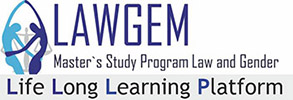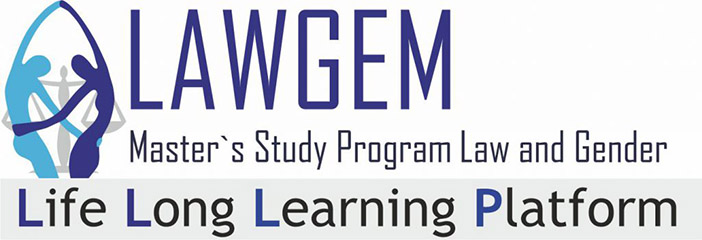Faculty of Law University of Belgrade in the cooperation with the OSCE Mission to Serbia organized the Spring School/Pilot Master – Law and Gender. This Spring School was based on the project LAWGEM and served as a kind of the pilot practicing of the future master`s study program Law and Gender. It covered all courses contained in this master`s study program curriculum, and the reading materials consisted to a great extent of the books published within the LAWGEM project. The School was organized in a hybrid form – in person at the Faculty of Law University of Belgrade and online, with 69 participants (students of undergraduate, master and PhD level), both from Serbia and other countries around the world (Albania, Belarus, Bosnia and Herzegovina, Brazil, China, Croatia, France, Germany, India, Iran, Italy, Montenegro, Russia and Vietnam). It is certain that participants of this School have gained valuable knowledge which will help them on their academic path and in their professional careers. On the other hand, the Spring School represented an excellent preparation of lectures and pedagogic experiences of the scholars from the University of Belgrade Faculty of Law for the future conducting the master’s study program Law and Gender.
On Tuesday, March 30th, Assistant Professor Dr. Nina Kršljanin and Teaching Assistant Una Divac held the optional course “Gender issues in Comparative legal history”. These lectures introduced students to some interesting aspects of the history of gender roles and relations, their creation, and evolution throughout the centuries. The first topic of the course was a brief reflection on prehistoric times, on the moment when the institution of family came into existence, together with the first gender roles within it. The focus then shifted onto Antiquity, where students had the opportunity to “walk through the halls” of the history of great, ancient civilizations, and learn about their societies, position of women and men in old Egypt, Mesopotamia, Greece, Rome… The second lecture centered around Middle Ages and gender issues in Byzantine, England, Sharia law, and Germanic states. A particularly interesting subject was the influence of monotheistic religions on the changes in men’s and women’s status in the medieval societies. Last but not least, the final lecture dealt with the contradictions in gender relations in the modern times, and all the factors which shaped and affected the position of women and their fight for equal rights – the great bourgeoise revolutions, the wave of civil law codification, the gradual gaining of civil and political rights, as well as the access to education, the suffragette movements, the influence of religion and secularization, and the interconnection of gender, race, and colonialism. At the very end of the course, students initiated a debate, where they expressed their opinions and posed questions in relation to the history of gender and gender relations.
Gender Issues in Comparative Legal History 1: Gender Roles and Relations in the Antiquity
Gender Issues in Comparative Legal History 2: Gender Roles and Relations in the Middle Ages
Gender Issues in Comparative Legal History 3: Contradictions of Gender Relations in Modernity

